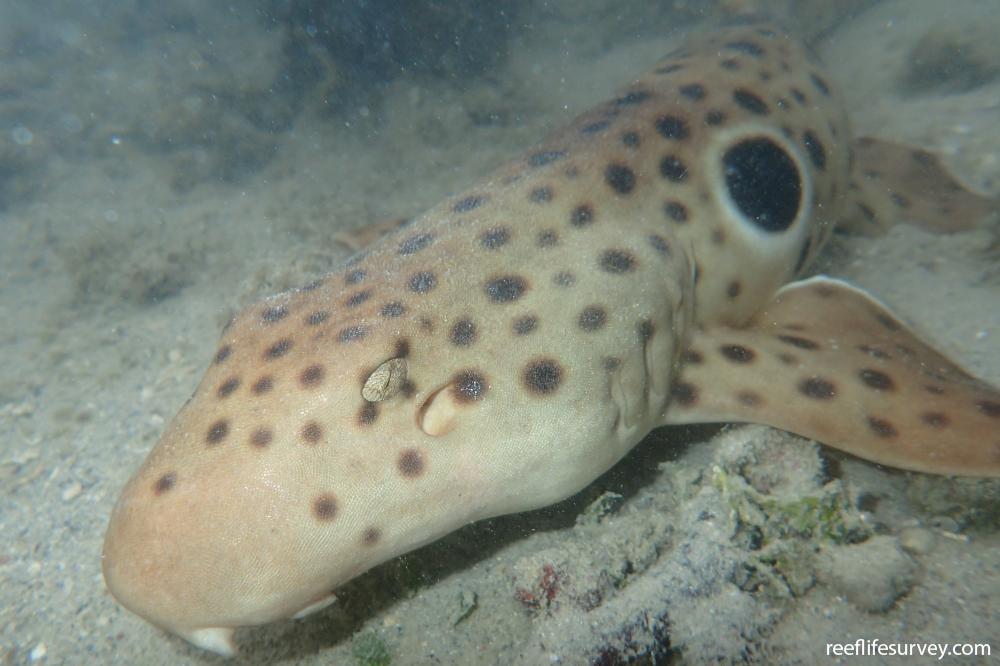Hemiscyllium ocellatum
Epaulette Shark | Blind Shark | Itar SharkSimilar Species
Same Genus
Distribution
Tropical Indo-Pacific
Description
Numerous black spots on body and tail, and large black ocellus with white margin behind base of pectoral fin. \'Walks\' using pectoral fins among shallow coral pools at night. Can survive intertidal pools heated by the sun with almost no oxygen.
Information
Max Size: 107 cm
Sea Temperature Range: 18.8-32.2°C
Depth: 0-50m
Habitat Generalization Index: N/A
Also referred to as the SGI (Species Generalisation Index), this describes the habitat niche breadth of the species. Species with values less than 15 are found in a relatively narrow range of reef habitat types (specialists), while those over 25 may be found on most hard substrates within their range (generalists). Learn more here.
Conservation and Rarity
IUCN Status: Least Concern
Occurrence: Infrequent (4.3% of sites)
Occurrence describes how often the species is found on surveys within its distribution. It is calculated as the % of reef sites surveyed by RLS divers across all the ecoregions in which the species has been observed
Abundance: Solitary (1 per transect)
Abundance is calculated as the average number of individuals recorded per RLS transect, where present.
Edit by: extract from RD Stuart-Smith, GJ Edgar, AJ Green, IV Shaw. 2015. Tropical Marine Fishes of Australia. Reed New Holland















